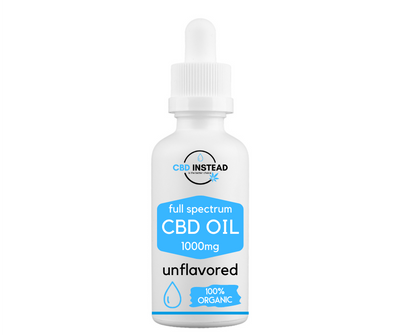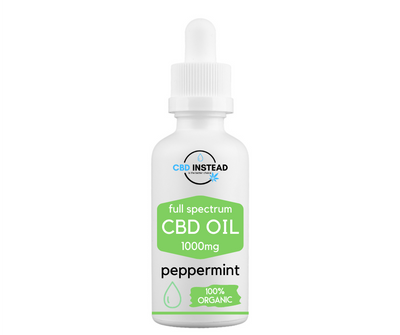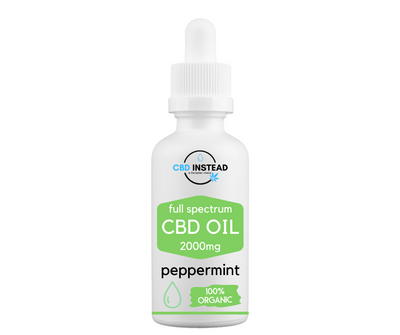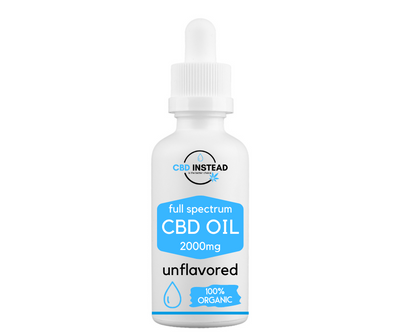Did you know that there is a strong link between diabetes and heart disease? If you struggle with your blood sugar, it is likely that your blood vessels and heart are suffering as well. Knowing why diabetes affects your heart can help you learn how to tailor your daily habits to make sure that you are living your healthiest life. Taking CBD oil may also be able to help make sure that your diabetes is managed and your heart stays healthy.
The Link Between Diabetes and Heart Disease

If type 2 diabetes goes untreated, it can start to damage your blood vessels and nerves that control your heart and blood vessels. The longer diabetes goes untreated, the more likely you are to develop heart disease, and you are more likely to develop it at an earlier age. The most common cause of death in individuals with diabetes is heart disease and stroke, making them twice as likely to die by these causes than someone who doesn’t have diabetes. Luckily, type 2 diabetes is completely treatable and managing your diabetic symptoms can help lower your chances of heart disease or stroke.
What Other Factors Increase Chances of Heart Disease or Stroke with Diabetes?
Smoking
If you smoke cigarettes, you are raising your risk of developing heart disease whether or not you have diabetes. If you have diabetes, it is even more dangerous. Both smoking and diabetes narrow the blood vessels, increasing your chances of developing long-term problems like lung disease. Smoking also damages blood vessels in your legs which can increase the risk of a lower leg infection, ulcers, and even amputation.
High Blood Pressure
If your blood pressure is high, your heart is working harder than it should to pump blood. High blood pressure strains your heart, damages blood vessels, and increases your risk of having a heart attack, stroke, eye problems, or kidney problems.
Abnormal Cholesterol Levels
Cholesterol is a type of fat that is produced by your liver and found in your blood. You have two types of cholesterol, the good and the bad. LDL, which is the bad cholesterol, can build up and clog your blood vessels. High levels of bad cholesterol raise your risk of developing heart disease and stroke. Triglycerides, another type of blood fat, can also raise your risk of heart disease when the levels are higher than what is recommended by your doctor.
Obesity and Belly Fat
Obesity and belly fat can make it a lot harder to manage diabetes and can increase your risk for a lot of different health problems, including high blood pressure and heart disease. Even if you aren’t overweight, excess fat around your waist can still raise your chances of developing heart disease. Excess belly fat generally looks like more than 40 inches in the waist if you are a man or more than 35 inches in your waist if you are a woman.
Family history
If someone in your family has suffered from heart disease or stroke, you have a higher risk of developing the same issues. If one or more of your family members has had a heart attack before the age of 50, your chances become even higher. If heart disease runs in your family, you have to work even harder toward managing your diabetes to prevent disease.
How to Lower Risk of Heart Disease when you Have Diabetes
Even though diabetes can become deadly, there are ways you can take control over this disease and lower your risks of heart disease or stroke. Try to follow these guidelines to keep your heart and blood vessels healthy when you have diabetes.
Manage your Diabetes ABCs

Your ABCs will help you manage your blood glucose, blood pressure, and cholesterol, all needed to manage diabetes and heart disease.
A is for the A1C Test
The AIC test is to show your average blood glucose level over the past three months. It is different from the blood glucose check that you do daily. The high the A1C number, the higher your blood glucose levels have been in the last three months. If your glucose is too high, it can harm your heart, blood vessels, kidneys, feet, and eyes.
B is for Blood Pressure
Blood pressure is how fast and hard the blood is pushing up against the walls of your blood vessels. If your blood pressure is too high, your heart is working too hard. The goal for most people with diabetes is to have blood pressure of 140/90, so ask your doctor what your specific goals should be. If you let your blood pressure continue to get too high, it increases your chance of heart attack or stroke and can damage your kidneys and eyes.
C is for cholesterol
You know all about LDL, also known as bad cholesterol. When this fat builds up, it can clog your blood vessels which can lead to a heart attack or stroke. The good cholesterol, or HDL, helps to remove the bad cholesterol from your blood vessels. When you go to the doctor, ask them what your cholesterol levels should be. If you are older than 40, you might need to take medicine to lower your cholesterol and protect your heart.
S is for Stop Smoking
Smoking is something that just kills us and does nothing else, yet still so many people partake in the activity. If you have diabetes, you absolutely need to figure out a way to quit. When you quit smoking, you lower your risk of heart attack, stroke, nerve disease, kidney disease, eye disease, and amputation. Your blood glucose, blood pressure, and cholesterol may improve as well as your blood circulation. Being physically active may also become easier.
Find out how CBD oil can help you quit smoking cigarettes here!
Develop and Maintain Healthy Habits
It is much easier to combat disease when you have healthy habits. Healthy habits are things like:
- A healthy eating plan
- Physical activity in your routine
- Get enough sleep
- Manage your weight
Learn to manage stress
Stress, anger, and sadness are all common when you live with diabetes. You may have the know-how on how to get healthy, but sticking with a healthy plan over time can be difficult. If you struggle with stress, it can raise your blood glucose and blood pressure if you choose not to manage it.
Take Medicine
Medicine is an important part of your treatment plan when it comes to regulating your blood pressure and cholesterol. Medicine can help you need your blood glucose goals as well. Ask your doctor what medicine would work best for you, and be sure to mention using CBD oil for your heart and diabetes.
CBD for Diabetes

Studies have shown that CBD oil may be a valid treatment option for diabetes by regulating your blood sugar as well as helping with other symptoms associated with diabetes like being overweight, depression, and fatigue. Because CBD has such an attractive side-effect profile with very few adverse reactions, many people are starting to trade in their medication for CBD oil.
CBD has shown in studies to help regulate your blood sugar levels by reducing the hormone called resistin. Resistin is a hormone that causes your body to become resistant to insulin, making your blood glucose levels unregulated. When you take CBD, resistin isn’t produced making your blood sugar levels regulated.
CBD for Blood Pressure
Along with your diabetes, you need to be paying extra close attention to your heart health. CBD oil may be able to help with heart disease and stroke making it perfect for people struggling with both diabetes and heart problems. Studies have shown that in just one dose, participants struggling with high blood pressure found significant improvements.
CBD for Your Heart
CBD oil may be able to do more than just regulate your blood pressure. Studies have shown that CBD oil has been successful in helping to regulate heart arrhythmias. Because CBD oil is so effective against inflammation, studies have also shown it can reduce the inflammation of the heart helping to preserve the living cells and prevent further damage.
More than Medicine
If you have an illness or know anyone with an illness, it is likely you know that medication is rarely the only answer. While it sure helps a whole lot, it doesn’t cover every base that you need in order to live a healthier life. One way to take medicine without actually taking medicine is by having a healthy diet.
Food is full of vitamins, minerals, and other types of chemicals that work together to make your body strong and healthy. However, there are also foods that will do the exact opposite and make you feel miserable. (Check out the importance of gut bacteria in this article and how it could be causing your health problems!)
Food to Eat for Diabetes and Heart Health
- Cinnamon
- Broccoli
- Spinach
- Beans
- Nuts
- Fruits
- Vegetables
- Protein
- Dark Chocolate (YAY!)
- Eggs
- Walnut
- Dairy
- Whole Grains
- Berries
- Salmon
- Apples
- Avocados
- Cauliflower
- Raisins






















